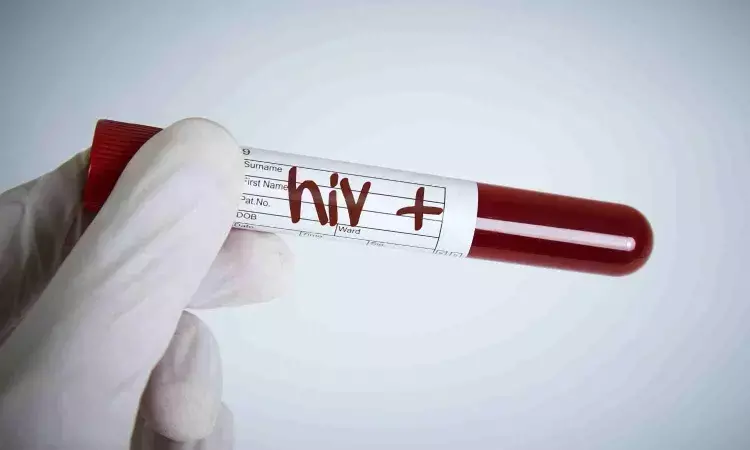- Home
- Medical news & Guidelines
- Anesthesiology
- Cardiology and CTVS
- Critical Care
- Dentistry
- Dermatology
- Diabetes and Endocrinology
- ENT
- Gastroenterology
- Medicine
- Nephrology
- Neurology
- Obstretics-Gynaecology
- Oncology
- Ophthalmology
- Orthopaedics
- Pediatrics-Neonatology
- Psychiatry
- Pulmonology
- Radiology
- Surgery
- Urology
- Laboratory Medicine
- Diet
- Nursing
- Paramedical
- Physiotherapy
- Health news
- Fact Check
- Bone Health Fact Check
- Brain Health Fact Check
- Cancer Related Fact Check
- Child Care Fact Check
- Dental and oral health fact check
- Diabetes and metabolic health fact check
- Diet and Nutrition Fact Check
- Eye and ENT Care Fact Check
- Fitness fact check
- Gut health fact check
- Heart health fact check
- Kidney health fact check
- Medical education fact check
- Men's health fact check
- Respiratory fact check
- Skin and hair care fact check
- Vaccine and Immunization fact check
- Women's health fact check
- AYUSH
- State News
- Andaman and Nicobar Islands
- Andhra Pradesh
- Arunachal Pradesh
- Assam
- Bihar
- Chandigarh
- Chattisgarh
- Dadra and Nagar Haveli
- Daman and Diu
- Delhi
- Goa
- Gujarat
- Haryana
- Himachal Pradesh
- Jammu & Kashmir
- Jharkhand
- Karnataka
- Kerala
- Ladakh
- Lakshadweep
- Madhya Pradesh
- Maharashtra
- Manipur
- Meghalaya
- Mizoram
- Nagaland
- Odisha
- Puducherry
- Punjab
- Rajasthan
- Sikkim
- Tamil Nadu
- Telangana
- Tripura
- Uttar Pradesh
- Uttrakhand
- West Bengal
- Medical Education
- Industry
Voluntary circumcision effective for preventing HIV infection among men who have sex with men: Study

Jharkhand Court Upholds Inmate Health Rights
A randomized controlled trial comprised of 247 men who have sex with men (MSM) found that voluntary medical male circumcision (VMMC) can prevent incident HIV infection. These findings suggest that MSM should be included in VMMC guidelines. The study is published in Annals of Internal Medicine.
Researchers from China enrolled uncircumcised, HIV-seronegative men aged 18 to 49 years who self-reported predominantly practicing insertive anal intercourse and had 2 or more male sex partners in the past 6 months in a trial to assess the efficacy of VMMC in preventing incident HIV infection. Once enrolled, all men received HIV counseling and testing and were then randomly assigned to immediate circumcision (intervention group) or circumcision delayed for 12 months (control group).
There were zero seroconversions in the intervention group and five in the control group, and the HIV incidence was lower in the intervention group. Given the context of this sample size and length of follow-up, the incidence rates of syphilis, herpes simplex virus type 2, and penile human papillomavirus were not statistically significantly different between the 2 groups. While VMMC may exhibit high protective efficacy, the authors caution that it is important to offer comprehensive protection against HIV with additional preventive measures. Recommendations include condom use, education to reduce the number of partners, regular HIV testing, and pre-exposure or post-exposure prophylaxis, as appropriate.
Reference:
Yanxiao Gao, Yuewei Zhan, Yinghui Sun, Weiran Zheng, Weijie Zhang, Leiwen Fu, Zhihui Guo, Huachun Zou, Efficacy of Voluntary Medical Male Circumcision to Prevent HIV Infection Among Men Who Have Sex With Men: A Randomized Controlled Trial, Annals of Internal Medicine, https://doi.org/10.7326/M23-3317.
Dr Kamal Kant Kohli-MBBS, DTCD- a chest specialist with more than 30 years of practice and a flair for writing clinical articles, Dr Kamal Kant Kohli joined Medical Dialogues as a Chief Editor of Medical News. Besides writing articles, as an editor, he proofreads and verifies all the medical content published on Medical Dialogues including those coming from journals, studies,medical conferences,guidelines etc. Email: drkohli@medicaldialogues.in. Contact no. 011-43720751


